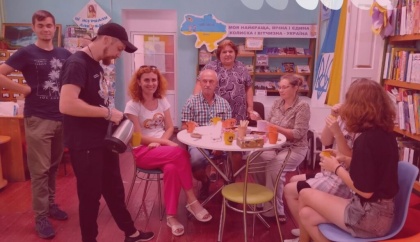
The full-scale war has caused an unprecedented wave of internal migration. According to the Ministry of Social Policy, 4.9 million internally displaced persons are officially registered in Ukraine, of which more than 2 million are people of working age. Employment remains one of the biggest challenges to be addressed for the successful adaptation of IDPs in new communities, as only 800,000 of them are currently officially employed.
Reprinted from gre4ka.info.
The Oleksandrivka territorial community in Kropyvnytskyi region has hosted many IDPs. Due to the absence of large enterprises, it is difficult for new residents of the community to find jobs. The local NGO Priority stepped in to help solve the employment issue. For two years now, it has been hosting the “Forum” documentary film club, which is part of the DOCU/CLUB Network of the NGO Docudays.
In spring 2024, the Network team launched a competition among film clubs, urging them to come up with ideas of advocacy campaigns to solve urgent problems in communities. The moderators of the film club from Oleksandrivka, Tetiana Bondarenko and Volodymyr Shabanov, joined this advocacy opportunity with the project “Integration+”: an initiative for employment and adaptation of people affected by the war.
Tetyana Bondarenko, moderator of the “Forum” film club at the NGO Priority, tells about the search for job opportunities, successful and unsuccessful employment ideas, and experience that can be shared with other communities in the region: “In the first days and weeks of the full-scale invasion, thousands of people flocked to our community. Many of them were ready to stay in the community, to work and develop it, but we could not offer them anything, so these people moved on. Those who stayed could not find work,” says Tetyana Bondarenko. “The employment situation is really problematic for us. The community is small, and there were not enough jobs even before the great war. We realized that we needed help, because the job-seeking process is even harder for IDPs than for locals. That's how we came up with the idea of an advocacy campaign.”
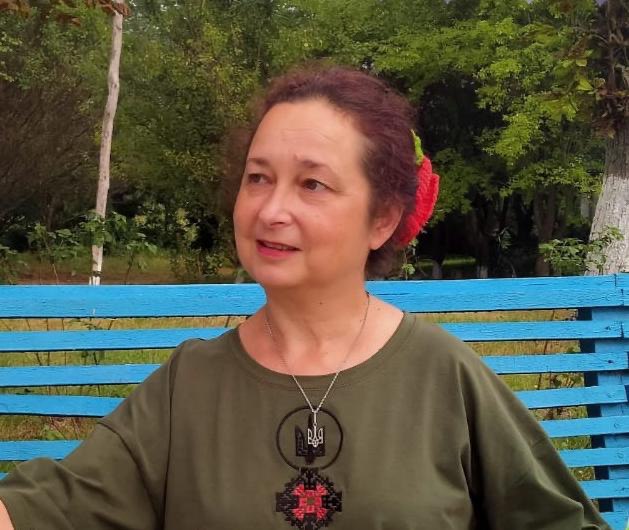
Together with like-minded activists, Tetyana developed an action plan: inviting IDPs and community members for documentary screenings and involving representatives of local authorities, employment services, businessmen, lawyers, and psychologists to discuss the problem of finding a job and find ways to solve it.
“We started by conducting a survey among IDPs to study the general situation with people in need of help. The survey is not yet complete, but we already have the first reliable results. We interviewed the administration, village mayors, and social security workers, because people turn to them with their problems. We realized that IDPs often do not know where to look for help, in the first place. There is a great need for legal advice from lawyers who specialize in helping IDPs. There is a need for psychological counseling. And this is a story of miscommunication, because there are psychologists who are willing to help, but the IDPs simply do not know about them.”
Inviting IDPs for the film club meetings was not always easy: some people have already lost faith, others are trying to solve all their problems on their own, and some are not willing to look for work, as long as they can live off of benefits and humanitarian aid.
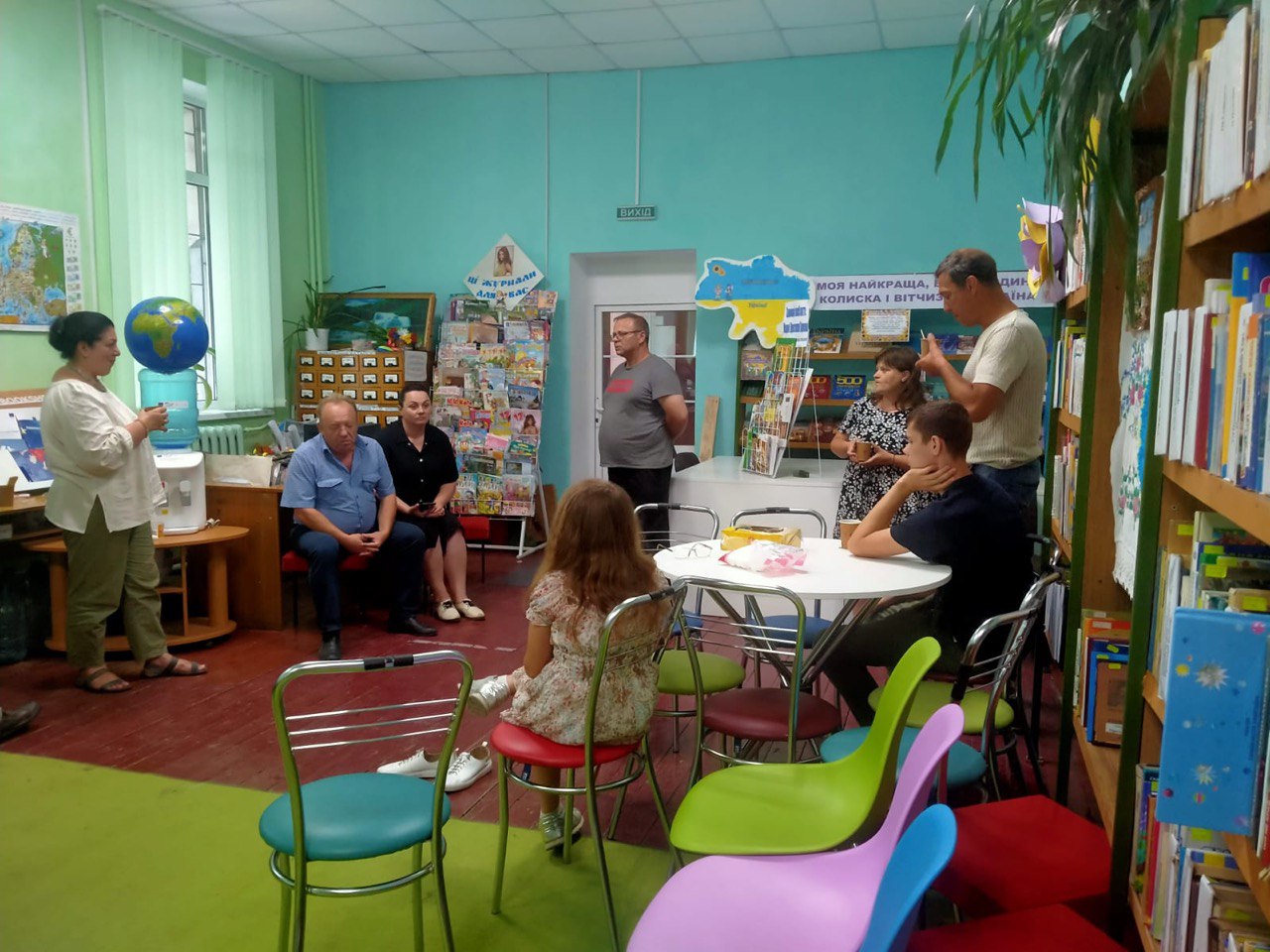
Tetyana says that the film club helped her get to know the IDPs, bring them together to solve the issue of employment, and involve the community members in this process: “Documentary films allow us to raise many important issues. When people watch a film, they want to actively communicate with each other and discuss it. For example, we watched the film Life in Paradise - Illegals in the Neighborhood by Swiss director Roman Vital, as well as films from the Encyclopedia of the Maidan series by director Serhiy Lysenko. They help viewers open up, encouraging them to compare the lives of the characters with their own, which opens the door to finding ways to change it. In fact, we started our film club as a tool that would help us realize the statutory goals of the organization, i.e. to protect the public interest. Meetings at the film club help unite people in a friendly atmosphere, over tea, coffee, and cookies, to change life in our community for the better. Documentary films help us greatly in this regard.”
The initiators of the campaign also invited to such meetings community leaders, local businessmen, and farmers.
“The idea of employing the IDPs really excited us,” says Tetyana Bondarenko. “We started to ‘attract’ everyone who could be involved in this process, studied existing employment programmes, and looked for successful examples. Let's be honest: the government often lacks funds and time, and is not always ready to work on solving these issues comprehensively. Our campaign has offered assistance and opportunity for the authorities to cooperate for the development of the community. It is beneficial for everyone.”
Tetyana and her fellow activists have developed a package of proposals to the existing IDP Support Program that awaits approval by local deputies.
The first result of their joint efforts was the employment of seven IDPs. For a small community with limited job offers, this is a great success. The initiator of the campaign says that, for six months, all stakeholders have been looking for different ways to employ IDPs: they have been conducting trainings on launching startups, telling about grant opportunities for IDPs, and negotiating with local farmers to create new jobs. According to her, these processes will continue, as they require more time and more effort. But the real know-how for the Oleksandrivka community was the idea of engaging IDPs in paid community work.
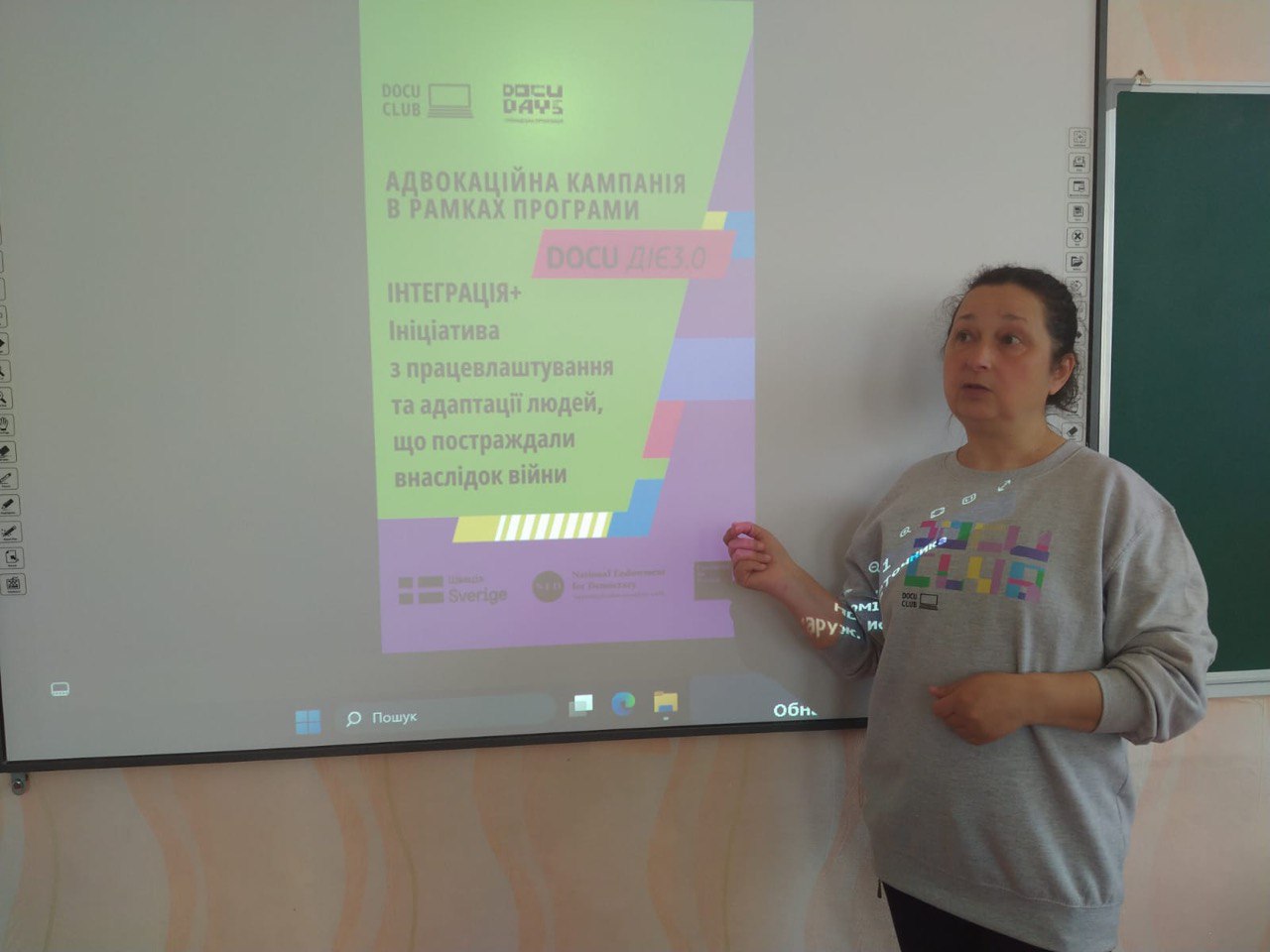
“It's not a permanent job – it comes up from time to time, but this still helps people hold on,” says Tetyana Bondarenko. “They are involved in cleaning the territory of the village, washing the monuments, arranging the cemetery – there is no one else to do it. Recently, we have finally started a project on building a public restroom, and they are working there as well. That is, people are involved in paid community works dedicated to landscaping. So far, this initiative has only worked within our village, but the IDP employment program we developed during the advocacy campaign provides that village mayors will also be able to engage people to do certain work in rural communities.”
Of course, these are not exactly well-paid jobs, but it is a significant support for IDPs. The initiator of the campaign says that an additional benefit of these efforts is overcoming distrust on the part of new residents of the communities – they realize that their problems are not going unnoticed and that local inhabitants are really trying to help them.
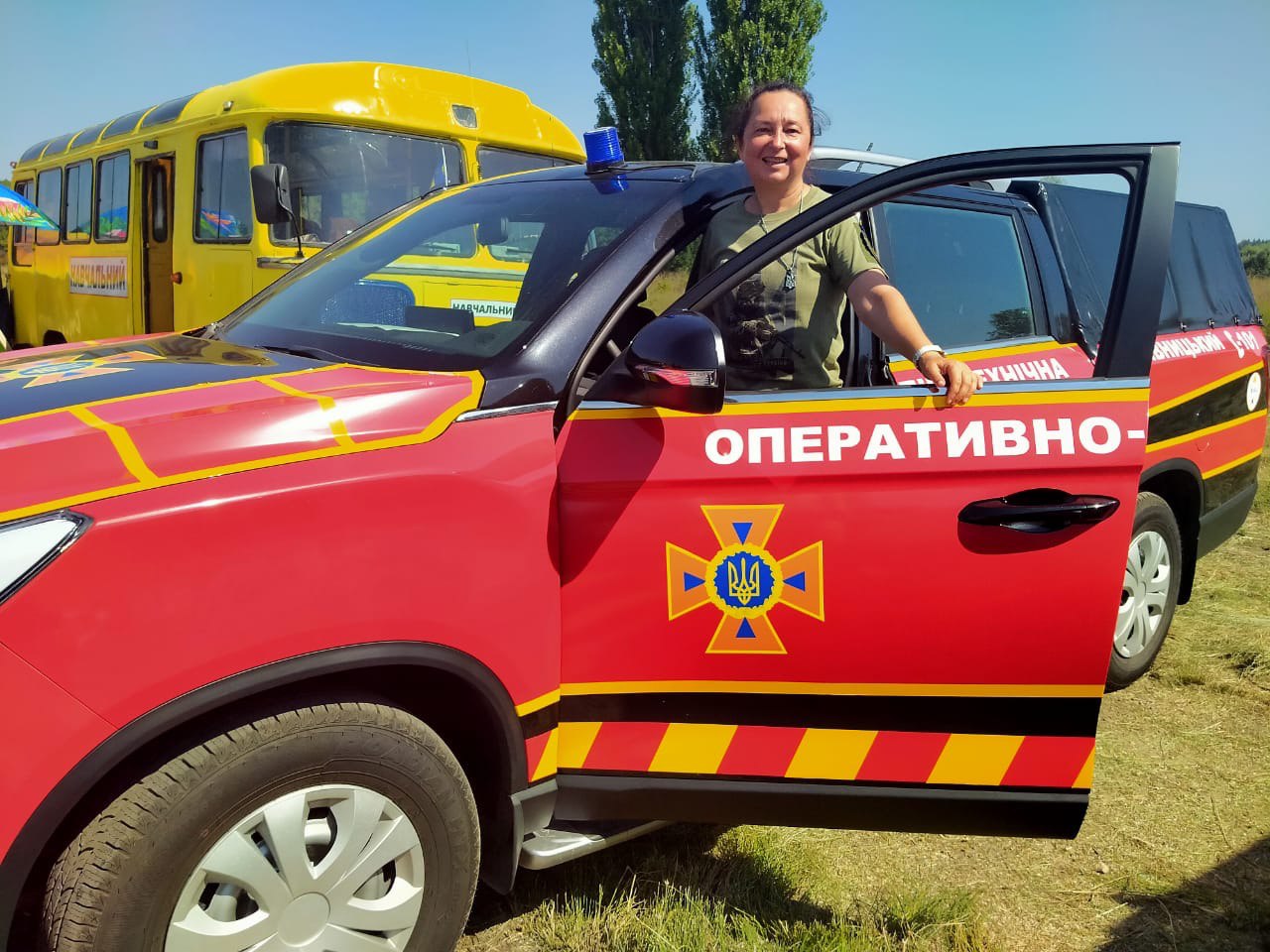
“Such community service helps IDPs get to know the locals better and feel needed. We can already see how this changes the attitude of the community members towards them, how prejudice disappears and gives way to gratitude. This is a crucial result of our efforts,” emphasizes Tetyana. “We understand everything is easier in big cities: there are more large enterprises where one can find a job, more government and non-governmental organizations available to help, etc. But we, at the level of our small community, are combining all our efforts to change the situation and help the IDPs.”
The NGO Priority plans on joining efforts with partner NGOs. Many of them develop social entrepreneurship and participate in various mini-grant competitions. The connection has already been established: in the summer, as part of the advocacy campaign, NGO Priority, together with partners from the public sector, organized and held a massive youth sports and technical event TechnoDrive, during which the community's youth had a chance to practice martial arts, go karting, communicate with the biker community, and participate in trainings and workshops from firefighters. Tetyana and her colleagues taught first aid and offered psychological counseling to the IDPs.
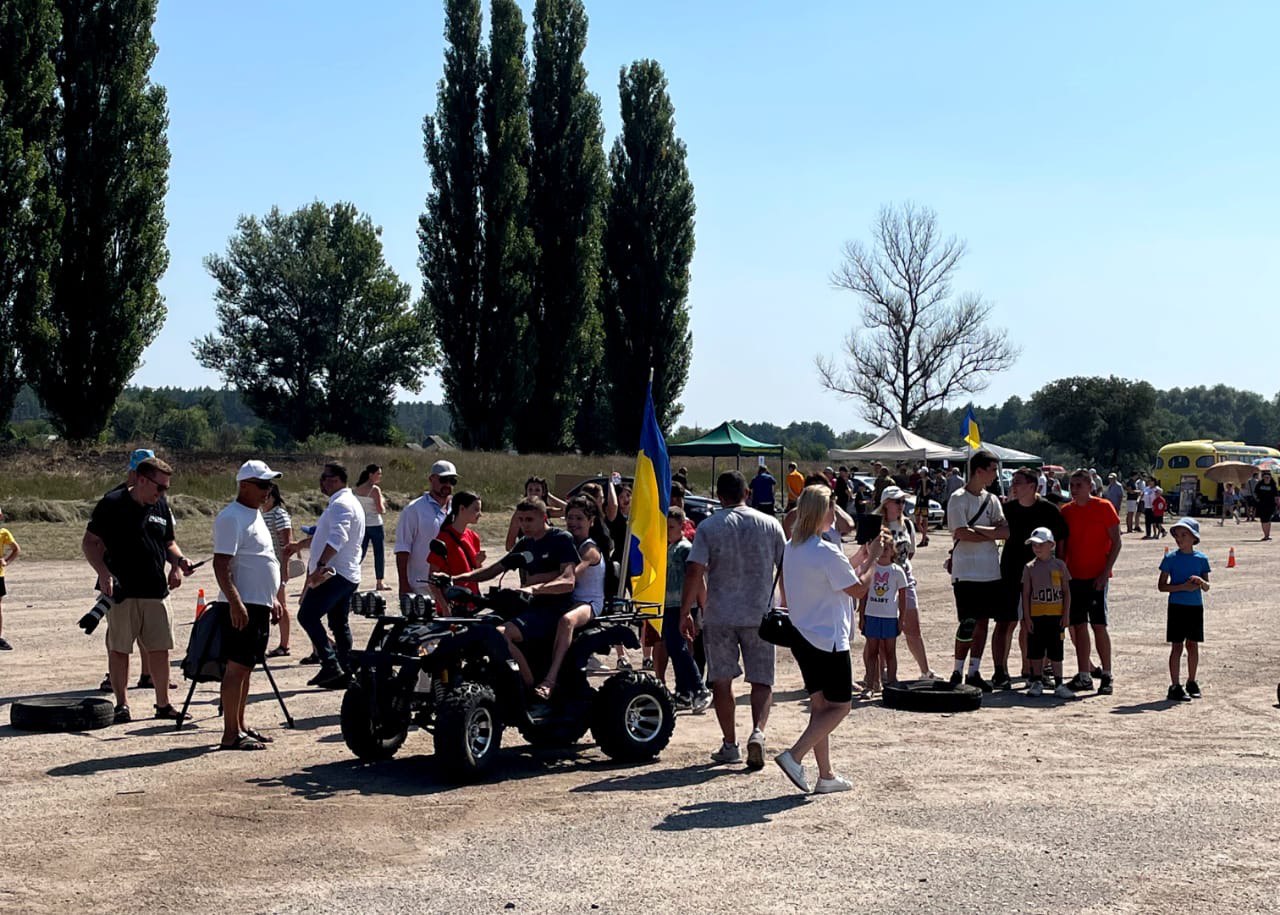
“I think that networking, combined efforts of the NGOs, and cooperation with the authorities will definitely yield results. I hope our experience will be useful for other communities in the region, because we all have similar problems and challenges. In the meantime, we will incessantly continue to work on solving social problems. Perhaps we will initiate a new advocacy campaign at our film club, because such work has proven to be very effective,” says Tetyana Bondarenko.
The development of the DOCU/CLUB Network is funded by the United States Agency for International Development (USAID), the Embassy of Sweden in Ukraine, the National Endowment for Democracy (NED) and Fondation de France.
The opinions, conclusions, or recommendations are those of the authors and compilers of this publication and do not necessarily reflect the views of the governments or charitable organizations of these countries. The authors and compilers are solely responsible for the content of this publication.



